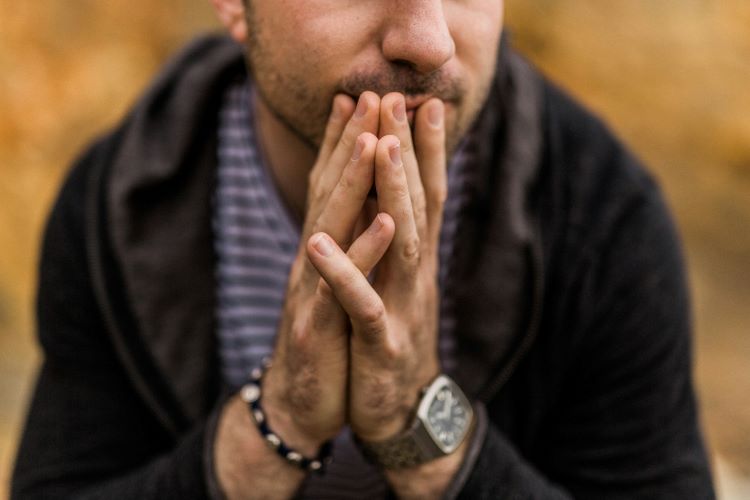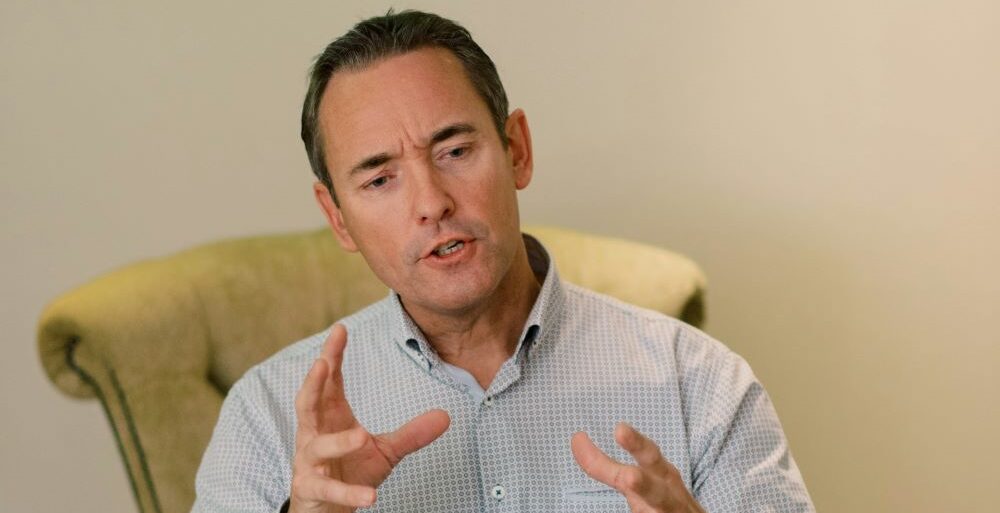Trauma therapy for addiction is a treatment that tackles both substance use problems and trauma.
Therapy is a highly successful way of treating both addiction problems and trauma.
Trauma and addiction are often linked, which is all the more reason to treat both of them with a therapy that focuses on both, and the way they interact.
Experiencing stressful and frightening events can leave us dealing with psychological trauma – an emotional response to what we have been through.
In many cases the actual event is not necessarily the problem – instead, it is our reaction to the event that may cause ongoing and prolonged distress.

Each person will experience and process events differently, and trauma can be caused by anything that can be seen as potentially harmful or threatening.
Trauma can leave people looking for a way to feel better.
There is a connection between trauma and addiction alcohol or substance use disorders.
But there is hope. There are many resources that can offer you a treatment plan that suits you.
Long-term recovery is possible, and there is an ever-growing list of cutting-edge treatments for trauma symptoms.
At OK Rehab, we offer free advice and referrals to rehab from a team of non-judgemental professionals, many of whom are also in recovery.
To find out more about trauma therapy for addiction, simply reach out to our 24/7, confidential hotline on 0800 326 5559.
What are the types of trauma?

Common types of trauma include:
1. Acute trauma
A singular event such as an act of terrorism or witnessing a fatal accident can cause acute trauma, in which the trauma is directly related to this sole event.
2. Chronic trauma
When an individual is exposed to stressful and frightening events on multiple occasions, such as domestic violence or bullying, they may develop chronic trauma.
3. Complex trauma

In some cases, the individual may have experienced a number of traumatic events that are not linked, and this can result in complex trauma.
4. Secondary trauma
If a partner, friend or familiar member experiences a traumatic event, those closest to them may develop secondary trauma as a result of this experience.
If treatment is not sought for the trauma, many people may attempt to self-medicate by turning to alcohol, drugs or other self-destructive behaviours as a way to block out painful memories and emotions.
At OK Rehab, we offer free advice and referrals to rehab from a team of non-judgemental professionals, many of whom are also in recovery.
To find out more about trauma therapy for addiction, simply reach out to our 24/7, confidential hotline on 0800 326 5559.
Which events can cause trauma?
Many people will experience a traumatic event during their lifetime, with 1 in 3 adults in England reporting that they have been affected by one or more specific events. [1]
You do not have to directly experience a traumatic event in order to be affected by it. Many people develop symptoms of trauma after witnessing another person going through a traumatic event, and their reaction is no less valid or understandable.
A traumatic experience can be an isolated incident or a repeated event, and what may be traumatic for one person may not have as much of an effect on another.
Common causes of trauma include:
- Sexual abuse
- Physical abuse
- Mental abuse
- Emotional abuse
- Experiencing a violent act or intentional cruelty
- Experiencing an act of terrorism
- Experiencing domestic violence
- Experiencing a life-threatening illness or accident
- Experiencing a natural disaster
- Experiencing a divorce or relationship breakdown
- Witnessing a fatal event or accident
- The death of a partner, friend, child or family member
- Having one or both parents in prison
- Being robbed or mugged
- Being kidnapped
- Being in a war
- Living through a global pandemic
If the event is unexpected, overwhelming and causes feelings of helplessness and powerlessness, it is more likely to result in long-lasting trauma.
When left untreated, trauma can have a severely detrimental impact on an individual’s physical, mental and emotional health.
What are the symptoms of trauma?
Ideally, an individual will receive the appropriate counselling shortly after the traumatic event has occurred, but this is not always the case.
Many people are hesitant to speak out about the event due to feelings of guilt and shame, and therefore do not receive the help and support that they need.
If left unresolved, trauma can develop into post-traumatic stress disorder (PTSD) which is a debilitating mental health condition that can have a devastating effect on a person’s life.
At OK Rehab, we offer free advice and referrals to rehab from a team of non-judgemental professionals, many of whom are also in recovery.
To find out more about trauma therapy for addiction, simply reach out to our 24/7, confidential hotline on 0800 326 5559.

What are the symptoms of PTSD?
Common symptoms of unresolved trauma and PTSD include:
- Frequent nightmares cause the individual to wake up trembling and sweating
- Difficulty trusting others, feelings of paranoia
- Flashbacks to the traumatic event
- Avoiding places, people and situations that act as reminders of the traumatic event
- Feelings of guilt, shame, worthlessness and anger
- Becoming hyper-vigilant, always looking out for danger
- Increased feelings of anxiety and depression
- Experiencing panic attacks
- Displaying reckless behaviours such as having unprotected sex or drunk driving
- Self-harming behaviours such as cutting, burning or slapping themselves
- Difficulty falling or staying asleep
- Becoming withdrawn and isolated
- Feeling irritable and aggressive
- Using substances such as drugs and alcohol as an escape
- Thoughts of suicide
If you are displaying any of the above symptoms after experiencing a traumatic event, whether the event was recent or many years ago, you will likely benefit from trauma therapy particularly if you are also dealing with a substance or behavioural addiction.
What’s the link between trauma and addiction?
Addiction and co-occurring disorders (mental health disorders) often go hand-in-hand.
As you try to escape from negative emotions, you may have fallen into using substances such as drugs and alcohol or engaging in other self-destructive behaviours such as excessive shopping, gambling and overeating.
One study found that up to 59% of young adults who struggle with PTSD will go on to develop a substance addiction in the future. [2]
While these coping strategies may be effective at managing trauma in the short term, substance abuse and other detrimental behaviours can prevent the individual from processing the event and leave them unable to move forward with their life.
At OK Rehab, we offer free advice and referrals to rehab from a team of non-judgemental professionals, many of whom are also in recovery.
To find out more about trauma therapy for addiction, simply reach out to our 24/7, confidential hotline on 0800 326 5559.

Long-term, addiction is likely to cause additional pain on top of the traumatic event.
Of course, not everyone who is dealing with an addiction has experienced trauma. Sometimes a substance addiction can contribute to the cause of a traumatic event, either directly or indirectly.
This can occur when a person addicted to alcohol becomes the victim of a sexual assault while intoxicated, or simply because addiction impairs the brain’s ability to deal with trauma and work through it in a healthy manner.
It is possible to escape from the cycle of trauma and addiction with the help of professional trauma therapy.
Our team at OK Rehab can put you in touch with an effective treatment programme in which you will receive help and support for both your unresolved trauma and your substance or behavioural addiction.
Types of trauma therapy for addiction

There are a number of methods that are used in the treatment of trauma and PTSD, primarily involving a range of talking therapies. These include:
1. Cognitive behavioural therapy (CBT) trauma therapy for addiction
Cognitive behavioural therapy for trauma is focused on challenging negative mindsets and thinking patterns while developing healthy behaviours and coping strategies to deal with events that cause us to feel anxious and fearful.
Patients may be encouraged to reframe their thinking around the traumatic event and view it from a more balanced perspective.
In some cases, exposure to items or topics that relate to the event can also be beneficial as the patient is experiencing it within a controlled and safe environment. [3]
This form of treatment is also heavily centred around mindfulness, in which the patient will undergo a series of activities that can help them to stay in the moment and realise that the traumatic event happened in the past and is not currently happening.
At OK Rehab, we offer free advice and referrals to rehab from a team of non-judgemental professionals, many of whom are also in recovery.
To find out more about trauma therapy for addiction, simply reach out to our 24/7, confidential hotline on 0800 326 5559.
2. Dialectical behaviour therapy (DBT)

Dialectical behaviour therapy is particularly effective at helping patients to manage their emotions, something that may be difficult for those struggling with unresolved trauma.
Many people who have experienced a traumatic event are seeking ways to deal with their emotions, and many of these methods can be detrimental to their physical, mental and emotional health.
Learning to sit with these emotions and manage them in a healthy way can allow patients to begin to move on with their lives and accept their experiences and feelings as opposed to fighting them.
3. Group therapy
Dealing with trauma can be a lonely and isolating experience, and many people may feel that their reactions to the experience are abnormal
Finding support and camaraderie within a group of people who share similar experiences can be an immense relief, as the patient will see that they are not alone in their response to the traumatic event.
They will be able to gain support and learn new coping strategies while also providing support to others.
Additionally, group therapy is an effective tool for building a strong network of people who understand exactly what you have been through.
4. Eye movement desensitisation and reprocessing (EMDR)

What happens during trauma therapy for addiction?
Under the guidance of a trained therapist, patients will be encouraged to recall the traumatic event while simultaneously making rapid and rhythmic eye movements that mimic REM sleep.
This form of trauma therapy is thought to change the way the brain processes traumatic memory and reduce many of the symptoms of PTSD.
At OK Rehab, we offer free advice and referrals to rehab from a team of non-judgemental professionals, many of whom are also in recovery.
To find out more about trauma therapy for addiction, simply reach out to our 24/7, confidential hotline on 0800 326 5559.
What can prevent trauma victims from seeking trauma therapy for addiction?

What stops people seeking trauma therapy for addiction?
Many people experiencing unresolved trauma and PTSD believe that they do not need to seek help, particularly if the event occurred many years ago.
They may think that they are able to deal with it themselves or believe that talking about the event will make their feelings and emotions worse.
However, symptoms of trauma and PTSD rarely get better without professional intervention, and may even get worse over time.
It is important to seek help as soon as possible to allow the mind, body and spirit to heal from the traumatic event and begin to move forward with your life.
What are common reasons people don’t seek trauma therapy for addiction?
Common reasons that prevent trauma victims from seeking therapy include:
- Believing that they are responsible for the event
- Fear that they will not be believed
- Feelings of shame, guilt and embarrassment
- Believing that seeking help is a sign of weakness
- Denying and minimising the events
- Believing that they do not deserve help and support
- Fear of remembering and reliving the experience
- Feelings of loyalty to the person who caused the event
Trauma therapy for addiction FAQs

What are substance use disorders?
Substance use disorder is an umbrella term that encompasses:
- Drug addiction, dependence and misuse
- Alcohol addiction, dependence and ‘alcoholism‘
Can trauma therapy for addiction result in long-term recovery?
Trauma therapy for addiction can help you to work on the root cause of your addiction, and offer personalised
- Coping skills
- Relapse prevention plan
- Aftercare
At OK Rehab, we offer free advice and referrals to rehab from a team of non-judgemental professionals, many of whom are also in recovery.
To find out more about trauma therapy for addiction, simply reach out to our 24/7, confidential hotline on 0800 326 5559.
References
[1] https://www.mentalhealth.org.uk/publications/impact-traumatic-events-mental-health









